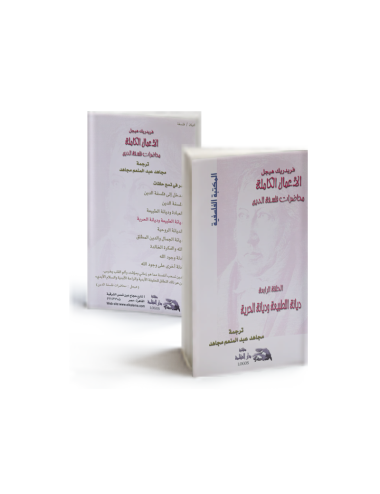History of Aesthetics
Man creates masterpieces of literature and art, but he does not want to be satisfied with this, but rather he wants to understand what is behind his creativity.
0.13 kg - 450 kg
Man creates masterpieces of literature and art, but he does not want to be satisfied with this, but rather he wants to understand what is behind his creativity.
The higher is also the deepest, and in it the separate moments are grouped together in the subsequent pigmentation of the subjective unity, the need for the interconnectedness that characterizes directness is eliminated, and the separate moments are returned to the subjective unity.
Bring the magic of storytelling into your child's life using the everyday world around you!
This book teaches parents to incorporate storytelling into household activities and to address real-life situations in their stories. In a world consumed by online and electronic media, it is refreshing to see how a parent can kindle a child's imagination through the magic of the oral tradition.
Where does joy fit into those moments?
In Choose Joy, acclaimed author and Christian leader Kay Warren shares the path to experiencing soul-satisfying joy no matter what you're going through. Joy is deeper than happiness, lasts longer than excitement, and is more satisfying than pleasure and thrills. Joy is richer. Fuller. And it's far more accessible than you've thought.
For Hegel, thought is not philosophical if it is not also religious. Both religion and philosophy have a common object and share the same content, for both are concerned with the inherent unity of all things. Hegel's doctrine of God provides the means for understanding this fundamental relationship. Although Hegel stated that God is absolute Spirit and Christianity is the absolute religion, the compatibility of Hegel's doctrine of God with Christian theology has been a matter of continuing and closely argued debate. Williamson's book provides a significant contribution to this ongoing discussion through a systematic study of Hegel's concept of God.
The normal, eternal, absolute idea - in its eternal existence - in and of itself - is God in his eternity or eternity before the creation of the world, and outside the world.
A person has needs in life, and the needs are arranged and gradual, some of them are basic and necessary, some of them touch his physical needs, and they are the ones that preserve his survival and presence in life, and some affect the mental and psychological side, and they help in his advancement, progress and creativity.
The main characteristic here is subjectivity as a self-determining force - and this subjectivity and rational power that we have met before in the form of the one who has not yet been defined within himself and whose goal - as it appears in the realm of reality - is in this the most specific thing possible.
The separation of religion from the subject manifests itself in the emergence of an actual will. In the will I am an actual and free being, and I present myself against the subject as another, in order to represent it with myself by removing it from that state of separation.
The world houses people equally with natural things. When the world is thus treated as a gathering or even a gathering of natural things, it is not conceived as nature, and we do not understand that it is something that is in itself a holistic system, a system of regulations and arrangements, especially laws.
This is the first of two volumes of the only English edition of Hegel's Aesthetics, the work in which he gives full expression to his seminal











